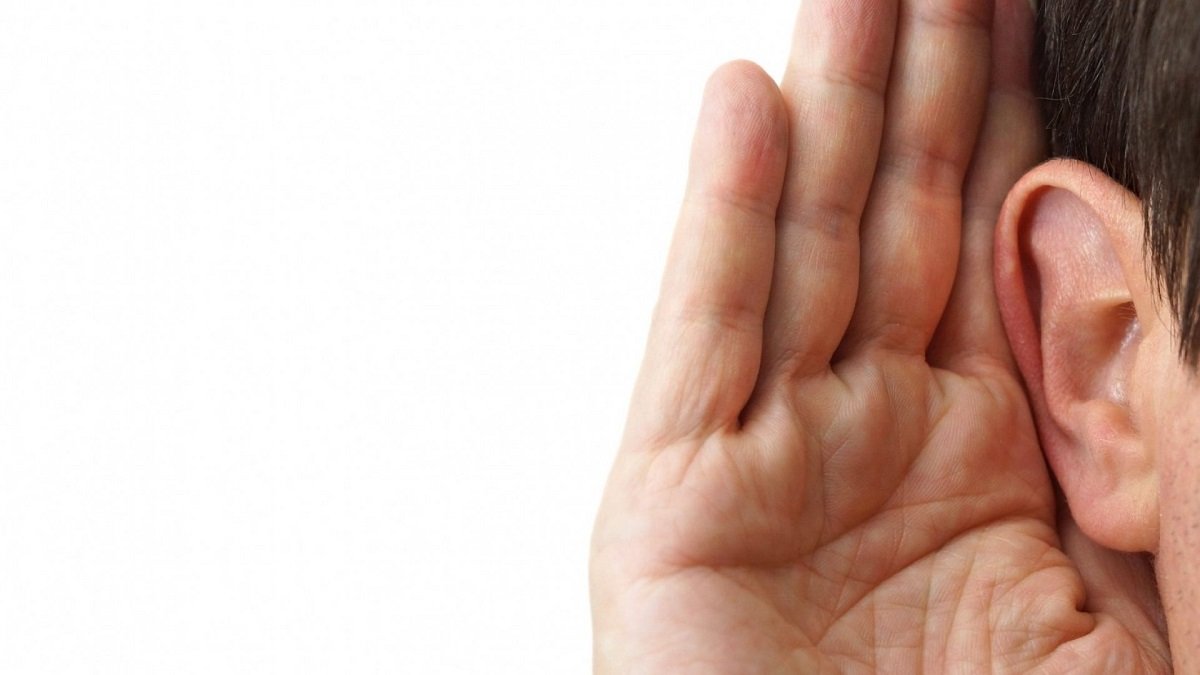You might benefit in all spheres of your life—professional, academic, social, and personal—if you can master the skill of listening. This article will discuss the value of listening abilities, their cultivation, their importance, and finding ways to improve your listening skills.
Everyone understands the value of communication, including colleagues, friends, family, and even odd individuals you meet on the street. However, it’s crucial to recognize that different individuals communicate in various ways.
Tips For Improving Your Listening Skills
1. Maintain Eye Contact
Maintaining eye contact is one of the ways to improve your listening skills. While someone is speaking to you and you are glancing around the room, checking your phone, or focusing on your screen, it might seem like you are aiming at a shifting target while you hold their gaze. The speaker could often just get a little portion of your attention. You don’t want to force the speaker to urge you to give them a childlike gaze.
While maintaining eye contact is considered an essential component of effective communication in most Western cultures, it may be seen as aggressive and impolite in cultures like Japan and Korea. Similar to this, certain neurodiverse individuals could find it challenging to maintain eye contact. It’s critical to comprehend the demands of both your speaker and audience.
However, for many individuals, eye contact is the primary means of communication. Not that you can’t talk to one another across a room, but if it drags on too long, one of you will have to get up and walk to obtain a better view of the other.
It is courteous to turn to face your discussion partner. Take out all of the books, papers, phones, and other distracting objects. Even if your spouse isn’t looking at you, nonetheless, gaze at them. Eye contact may be avoided by certain individuals in specific circumstances due to cultural taboos and feelings of shyness, uncertainty, humiliation, guilt, or other negative emotions. You may let them go but continue to pay attention on your end.
2. Be Attentive To Non-verbal Cues
The bulk of direct communication is nonverbal, except via email. Without saying anything, we may learn a great deal about one another. Even while speaking on the phone, a person’s voice tone and inflection may reveal nearly as much about them as their words.
When you’re face-to-face with someone, your expression might convey excitement, boredom, or displeasure via the eyes, lips, or shoulders. You cannot afford to ignore these indications. Keep in mind that words may only express a portion of a message. Once again, it’s crucial to note that body language may differ within cultures and that neurotypical people could be better at reading it than certain neurodiverse people.
3. Be Cautious, But Not Too So
Being alert is an answer to how to become a better listener. Once you’ve established eye contact, let the discussion flow naturally. It’s not necessary to stare at the other person; in fact, the speaker may get uncomfortable if you are very focused or intense. However, once again, some individuals may need this ongoing communication to keep up with the discussion. Ultimately, it’s beneficial to focus your attention in any way you see fit.
You should make an effort to deliberately block out distractions and background noise. Additionally, avoid paying too much attention to the accent or mannerisms of the speaker, since these may be distracting. Make an effort not to let your prejudices, opinions, or personal feelings get in the way. It is one of the most effective ways to improve your listening skills.
4. Don’t Interrupt
Everybody talks differently and absorbs information at various speeds. If someone is speaking slowly, try to be patient with them and wait for them to finish before attempting to hurry them by assuming what they will say next or responding before they have completed speaking.
Interrupting gives the speaker an incorrect impression. It might imply that you don’t care what they have to say, that your opinions are more significant than theirs, or that the discussion is a contest. It’s crucial to avoid providing answers as well. Most of the time, all they want is your attention. But before you provide your answer, if you have a great suggestion, you may want to ask whether you can share it.
5. Be Mindfully Present
Being mindfully present is one of the ways to improve your listening skills. While it may seem apparent that you should “be present” during a discussion, it’s sometimes easier said than done. Thus, what steps can you take to ensure that your body and mind are in sync and focused on the same thing?
Duke suggests getting rid of your phone and other distractions as the first thing he would do. Placing your phone in front of you suggests to the other person that you don’t care about what they are saying, even if you are listening.
Thus, ensure that you are properly positioning yourself for effective active listening and that the other person has your undivided attention. It’s great to try to be present. Even the most attentive listener is unable to focus entirely at all times.
6. Make A Mental Image Of Speaker’s Statement
Permit your mind to visualize the knowledge you’re learning. If you remain concentrated and give your senses their entire attention, your brain will perform the job, whether it’s organizing information or creating a mental image. Pay close attention to and retain important words and phrases while you listen for extended periods.
When it’s your time to listen, don’t prepare your speech in advance; it’s extremely hard to mentally practice while listening. Give all you are saying to the other person. And last, even if it all seems boring or insignificant, keep in mind what is being stated. When your thoughts stray, make a deliberate effort to bring them back to the present.
7. Ask Relevant Questions
Asking questions is one way to become a better listener. These inquiries may include asking someone to clarify a point they made, asking them how they feel about something they said, or reflecting on what they said to make sure you understand them right.
In reality, when we ask insightful questions, we are letting the other person know that we are perceptive enough to inquire. We may even reveal to them emotions or ideas they weren’t aware they possessed to show that we understand them. Thus, you’re building a stronger relationship.
8. Show Empathy
Emotional intelligence and empathy are the cornerstones of effective listening. If you feel happy when someone else expresses happiness, scared when they express fears, or sad when they show grief, you’re a good listener. Your words and facial gestures may convey this.
Empathy requires you to place yourself in the other person’s position and permit yourself to experience what it’s like to be them right then. This is challenging to do and calls for a lot of focus and work. In any case, it will greatly improve the quality of your exchanges. It is one of the best ways to improve your listening skills.
9. Be Open-Minded
It is important to listen to others without passing judgment or mentally analyzing what they are saying. If anything they say makes you uncomfortable, by all means, express your discomfort, but avoid internal dialogue by not crafting a rebuttal or equating the speaker with others. The moment you start thinking with judgment, you lose value as a listener.
Pay attention without drawing judgments too quickly. Remember that the speaker is using words to communicate their innermost emotions and ideas. The only way to learn is to listen; you have no clue what those thoughts and emotions are.
Importance Of Active Listening
A person’s ability to actively listen varies. Furthermore, some individuals are more in need of active listening in their daily lives than others. As part of their work, teachers, therapists, and barbers must be able to interact with and really hear other people all day, every day. But these are the kinds of abilities that everyone needs.
Finding ways to improve your listening skills by attentively listening to people offers several advantages, regardless of whether you’re negotiating romantic, familial, professional, or other personal relationships:
Improves Empathy: Some individuals believe empathy, or the capacity to comprehend or feel sympathy for another person, is a natural trait that may be acquired or not. However, as time has gone on, we’ve learned that empathy is more like a muscle, even if not everyone has it. It may atrophy if it is not used. Furthermore, empathy fatigue might set in if you use it too often. Empathy training is necessary for active listening.
Putting oneself in other people’s shoes is essential, regardless of your objective—maintaining a strong connection with your adolescent or offering excellent customer service. As an added benefit, empathy enables us to practice self-compassion for ourselves when we fail.
Creates Mutual Trust: Even when there is a power disparity, we may build trust through attentive listening. For instance, trust and respect will grow in a working relationship if an employee really believes that, in spite of the hierarchical structure, they are being heard and understood by their supervisor and that their opinions are valuable. Everyone in our vicinity has to be trusted to take initiative, follow through, and lead.
Shows Respect: Respect for one another leads to increased commitment, better boundaries, self-assurance, and overall happiness. When you show that you care about someone else’s thoughts and emotions, you are expressing your worth to them, which makes them feel validated. That is really important, particularly when a connection of any type is on the line.
Resolves Conflicts: Although none of us like conflict, most meaningful relationships inevitably include it. In certain situations, active listening is essential since it necessitates being receptive to what others have to say. Active listening can help you defuse tense situations and arrive at a win-win agreement much faster when those tough talks are necessary.
FAQ
Q: For what reason does one listen actively?
A: Listening not only improves your comprehension and communication skills, but it also helps other people find chatting with you more pleasant.
Q: How does one begin actively listening?
A: Active listening refers to the deliberate attempt to completely engage with someone’s words and grasp their true meaning. Active listening has five key components: paying attention, demonstrating that you’re paying attention, offering feedback, delaying judgment, and reacting correctly.
Q: How can one become a lousy listener?
A: Bad listeners are easily sidetracked and may even cause disruptions that impair others and their ability to listen effectively. They fidget, converse with nearby residents, or rearrange documents. They don’t try very hard to hide how bored they are.











